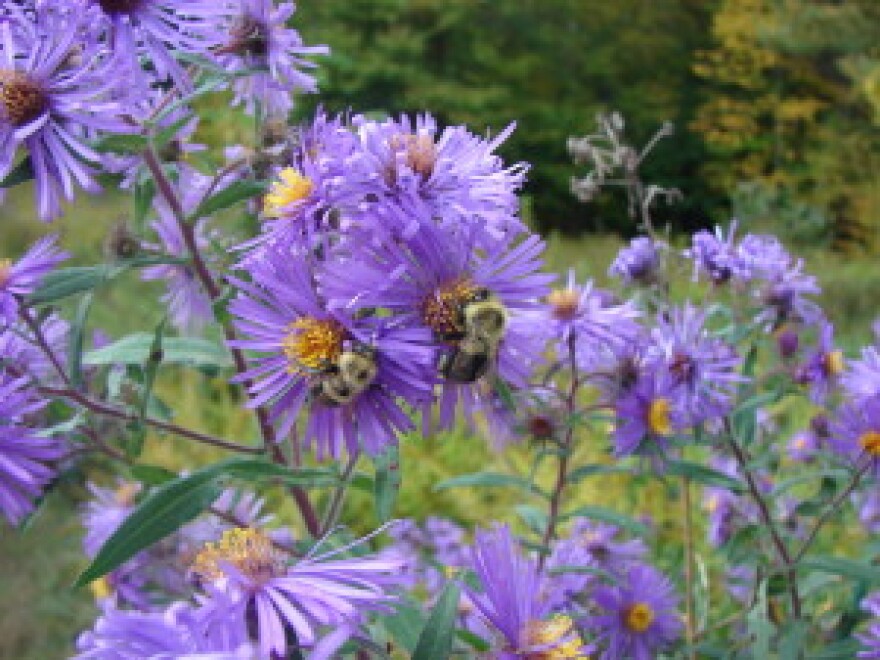New England naturalists will be in New Hampshire this weekend to talk about new efforts to restore pollinating species and native plants. NHPR's Annie Ropeik has more about their first-ever pollinator symposium.
Certain bees and other species that help plants reproduce have seen drastic decline in the Northeast and elsewhere in recent decades.
It's partly due to the rise of single-species agriculture - where a single type of crop is grown over a large area. Courtney Allen is director of public programs for the New England Wild Flower Society.
"Certainly we can talk about causes such as lack of genetically diverse and pesticide-free native plants - that's certainly one of the reasons for pollinator decline."
But she says pollinators are important to maintaining biodiversity, and growing food crops.
So groups like hers want gardeners to grow more native plants and help gather data on pollinators in the wild using citizen science mobile apps.
They'll delve into those efforts at a new pollinator research symposium on Sunday, at the New Hampshire Audubon Center in Concord.








